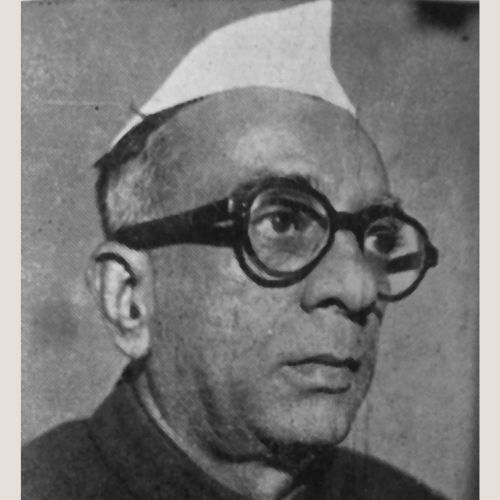Early Life
Kasturiranga Santhanam was born in 1895 at Madras. He obtained his law degree from Law College, Madras. From 1920, he practiced at the High Court of Madras.
Santhanam also served as the first editor of the Indian Express from 1932 until 1940; subsequently, he became the joint editor of the Hindustan Times. During his time at the Indian Express, he also was a member of the Legislative Assembly. A staunch Congressman, he was part of the All India Congress Committees.
In 1944, Santhanam became the Joint Secretary of the Sapru Committee.
Role in India’s Independence Movement
Santhanam was very active in the freedom struggle. He participated in the Non-Cooperation and Satyagraha movements, and was imprisoned thrice for his role in the latter. From 1922 to 1930, he organized movements to encourage khadi production all over Tamil Nadu.
Contribution to Constitution Making
Santhanam was elected to the Constituent Assembly from Madras on a Congress Party ticket. He often spoke in the Assembly, and some of his key interventions were on adult franchise, local governance, and citizenship.
Later Contributions
In 1948, Santhanam was appointed as the Minister of State for Transport. He later became the Lieutenant Governor of Vindhya Pradesh.
In 1962, Santhanam was appointed as the chairman of the Committee on Prevention of Corruption. The recommendations of this Committee, also known as the Santhanam Committee, resulted in the establishment of the Central Vigilance Commission in 1964.
Santhanam passed away on 28th February 1980.
Key Writings
A prolific writer, Santhanam wrote on subjects ranging from politics to literature. Some of his notable works include An Anthology of Indian Literature, Gospel of Gandhi, Union-State Relations in India, and Looking Back: Memoirs of K. Santhanam (1895-1980).
- During the period when the provinces were preparing the electoral rolls for the first general elections, Santhanam argued in favour of the rolls being maintained by the Central Government to ensure that nobody was disenfranchised due to their linguistic or religious affinity.
- He favoured greater autonomy for villages and provinces, and opposed overarching powers for the centre. Further, he argued in favour of equitable distribution of financial resources between the various units of governance.
- During the debates on citizenship, Santhanam moved an amendment to define a citizen as ‘Every person born or naturalized in India’.

